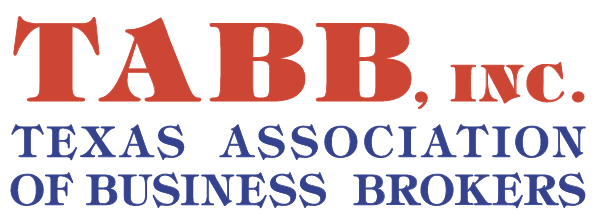
Seller’s discretionary earnings are simply the total net benefit to the business owner.
What are a business seller’s discretionary earnings?
It is NOT the profit or loss that a business owner shows Uncle Sam on the tax return. To put it delicately, almost all business owners run some expenses through the business that are not — a’hem – absolutely necessary to the operation of the business.
Seller’s discretionary earnings (SDE) are the total cash that the business generates in a year that is available to the owner after deductions for only the necessary operating expenses. Another way to define discretionary earnings is that it is the “total owner’s benefit” derived from owning the business, regardless of how the owner takes the money out of the business.
More formally, seller’s discretionary earnings (SDE) is the amount of cash left over after paying only the necessary operating expenses that is available for (1) owner’s salary and benefits, (2) return on investment and (3) debt service, if any.
To illustrate, let me tell you about the sale of a restaurant that I handled as a business broker several years ago. The profit and loss statement from the business was actually showing a small loss.
However, the owner’s wife drove a Lincoln Navigator which was listed on the books of the business as a company vehicle. The company also paid for all her gas and maintenance on the Navigator although she had no role in the operation of the restaurant. Same for the daughter’s Honda which she drove back and forth to college. The daughter was also on the payroll as an employee of the restaurant which furnished her with spending money at college, although she never actually worked at the restaurant.
The family’s ski vacation to Colorado was charged to the business because the owner attended a business meeting for a few hours while in Aspen. You see where I’m heading here, don’t you? By the time all these items plus any non-cash expenses (eg: depreciation) were accounted for, the restaurant was actually producing a nice yearly cash flow for the family.
DISCLAIMER: Hey, I’m not with the IRS and don’t render an opinion on these sort of things!
In addition to the owner perks discussed above, non cash deductions like depreciation are added back to the net profit shown Uncle Sam, as are one time expenses not likely to recur (eg: an air conditioning system being replaced).
CPAs and business brokers often refer to the computation of discretionary cash flow as normalizing or recasting the company’s profit and loss statement.
Why is the computation of discretionary cash flow important?
It provides an accurate picture of the true cash producing ability of the business. In effect, it uncamouflages the bookkeeping practices of most business owners.
And since many business appraisals are done based on the seller’s discretionary earnings, it’s important to be able to accurately compute the number.
Here’s an article explaining the differences between seller’s discretionary earnings (SDE) and earnings before interest, taxes, depreciation, and amortization (EBITDA). It’s an important difference that often causes confusion.
If I can help with any questions or computations on this subject, don’t hesitate to contact me.
# # #


















That was interesting. It was something I knew at some level but never put it together as a complete thought.
Mr. Benton, thanks for dropping by. Hope all is well with you.
Do the business owners have to pay taxes based on the cash flow amount.
Example: if you have $100.000 cash flow. Do you have to pay a certain percentage for taxes?
Yama, no, the business owner pays taxes on “net income” as defined by the taxing authorities. In the U.S. the taxing authorities, (I.R.S. and state jourisdictions) allow non cash deductions (eg: depreciation and amortization) to be deducted before net income is calculated. Also, they may allow some expenses which are not considered to be absolutely necessary to the operation of the business.
William, thank you for the replay. By the way awesome article, you managed to explain the Cash Flow in plain English with specific everyday examples for small businesses. most of the texts on internet show highly complicated examples of multi-billion dollar corporations but I was more looking for small business examples of like a pizzeria or convenience store as I am planning to buy one.
Thank you.
Pingback: How to Sell a Business: The Critical Question of Price | William Bruce on Business: A Discussion
Great article.
Thanks for explaining in a plain English the definition.
Pingback: Business-for-sale Marketplace Continues Strong into 2015 | William Bruce on Business: A Discussion
Pingback: Using Rule-of-Thumb Guidelines to Estimate Business Value | William Bruce on Business: A Discussion
Pingback: The 3 Financial Benchmarks All Business Owners Should Monitor. | William Bruce on Business: A Discussion
Pingback: Sick Flow: How Cash Can Kill Your Restaurant Deal - KaTom Blog
Pingback: Business-for-Sale Marketplace Appears Strong in 2016 | William Bruce on Business: A Discussion
Pingback: How to Use the SBA 7(a) Loan Program to Buy a Business | William Bruce on Business: A Discussion
I own a restaurant over 10 years. It is about time to sell it. What about my own payroll? I worked over 50 hours a week or say $48000 salary. So is this amount accounted for discretionary cash flow. Thank you.
Benny, in the computation of seller’s discretionary earnings (cash flow), the owner’s W-2 salary is an adjustment (an add-back). Other usual add-backs are depreciation, interest and owner benefits/perks that will disappear for a new owner. Hope this helps.
Similar to this question, many franchises offer the option to run a location yourself or hire a manager so you can be absent. Would the SDE be computed including or excluding the optional manager’s salary? Like the question above would the buyer assume he needs to hire a manager at $48k/yr and deduct the amount from SDE? How might that be affected for multiple locations if the owner managers one location? Thanks in advance.
David, most recastings of the P&Ls for small businesses are done for an onsite owner-operator. If you know you are not going to be working in this capacity in the business, you would need to take the market value of a general manager’s salary out of the cash flow.
Pingback: Record Number of U.S. Small Businesses Were Bought and Sold in 2016 | William Bruce on Business: A Discussion
Pingback: Selling a Business: Here’s How to Successfully Meet with a Prospective Buyer. | William Bruce on Business: A Discussion
Pingback: Considering Buying a Business of Your Own? Here’s a List of the Most Frequently Asked Questions and Responses by William Bruce. | William Bruce on Business: A Discussion
Pingback: Understanding Seller’s Discretionary Earnings (SDE) – Exit Oasis
Pingback: Looking at a Business for Sale That You Might Want to Buy? Here’s How to Analyze It. | William Bruce on Business: A Discussion
Pingback: Here's How to Value a Retail Business - William Bruce Discussing BusinessWilliam Bruce Discussing Business
Pingback: Using Convenient Rules-of-Thumb to Quickly Estimate Business Value - William Bruce, Accredited Business Intermediary, Confidentially Assisting Business Buyers and Sellers Since 1986 with Valuations and Ownership Transfers.William Bruce, Accredited Busines
Thanks for this great article! If a retail store has been in business in a community for 50 yrs and locally has some name recognition, would there be “goodwill” that needs to be considered? If so, how is the value for that derived? Thanks!
Ellen, thanks for visiting. The retail store would definitely have some goodwill as part of its value. The valuation guideline for retail stores, in general, is 1.5 to 3 times correctly computed discretionary earnings plus inventory at cost and plus real estate, if any. The multiple of 1.5 to 3 covers furniture, fixtures, equipment, and goodwill, but not inventory or realty. If you need a written, fully documented valuation, let me know. We can provide that.
Hi William,
I am looking at an existing business to purchase. I will be a first-time business owner and I have to admit I’m still confused about it all. The annual revenue of the business is $540,000 and the SDE is $25,000. I don’t have all of the financials yet, but what should I be looking for when I finally get them? $25,000 just seems very low considering their revenue. What questions should I be asking?
Thanks!
Lynn, thanks for visiting. When you get the financials (preferably the tax returns), look for any W-2 salary that the owner is paying him/herself. Then look for any depreciation and interest expense on the tax returns. Then take a look for any personal expenses of the seller that will disappear if you buy the business. Add all of these items to the net profit or loss shown on the tax return, and you’ll have a close approximation of the “discretionary earnings” of the business. Hope this helps. Call if we can help. -Will
Pingback: The 3 Most Critical Issues in Buying or Selling a Business - Everything about valuing, buying, or selling a business in one place. Click the "Resources" tab below to explore. William Bruce has been assisting clients with these issues since 1986.
Pingback: Here's How to Value a Restaurant or Bar Business - Everything about valuing, buying, or selling a business in one place. Click the "Resources" tab below to explore. William Bruce has been assisting clients with these issues since 1986.Every
Pingback: The 2023 Condition of the Private Business-for-Sale Marketplace From Insiders Including Valuations Disclosures - Everything about valuing, buying, or selling a business in one place. Click the "Resources" tab below to explore. William Bruce has
Thanks for your email. This article explains discretionary earnings, https://williambruce.org/2020/03/23/what-are-sellers-discretionary-earnings/, and this article explains the difference in discretionary earnings and EBITDA., https://williambruce.org/2020/08/24/what-are-the-differences-between-ebitda-and-sellers-discretionary-earnings-sde/.